Manchester Arena Inquiry: Terror offender 'unfit to give evidence'
- Published
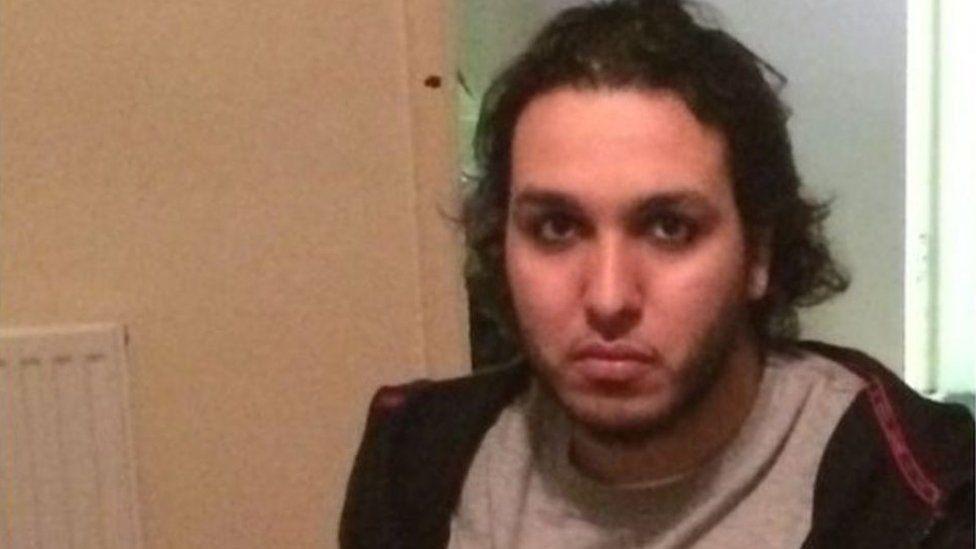
Abdallah has cited a privilege against self-incrimination as a reason to refuse to appear at the inquiry
A convicted terror offender who was the Manchester Arena bomber's friend "is unfit to give evidence" to the inquiry into the attack, his lawyer has said.
Abdalraouf Abdallah was visited by the bomber Salman Abedi in prison in the months before the 2017 attack.
He has refused to appear at the inquiry but families of the attack's victims want to know why he cannot be forced.
A hearing was told a decision on whether the families could access his medical reports would be made later.
Abdallah, who is in prison, is refusing to give evidence to the Manchester Arena Inquiry even though he has been described as having had a significant relationship with Abedi.
Abedi detonated a homemade device in the foyer of Manchester Arena as people left a concert on 22 May 2017, killing 22 people and injuring hundreds more.
The families of those who died have been told there are medical reasons why Abdallah cannot be forced to give evidence, but they want to see the reasons for themselves.
After giving a "no comment" interview to lawyers before the inquiry began, forensic psychiatrist Dr John Kent was instructed to interview Abdallah in prison but he refused and instead was interviewed by a psychiatrist suggested by his legal team, Dr Richard Latham, whose report was then reviewed by Dr Kent.
Dr Latham's report concluded Abdallah was unfit to give evidence and making him do so could risk self-harm.
Abdallah wants only a "gist" of both reports to be disclosed and his lawyers on Tuesday applied for the full report to be withheld.
Abdallah was jailed in 2016 after being found guilty of helping people travel to Syria to join the Islamic State group and was returned to prison in January, a few weeks after being released on licence.
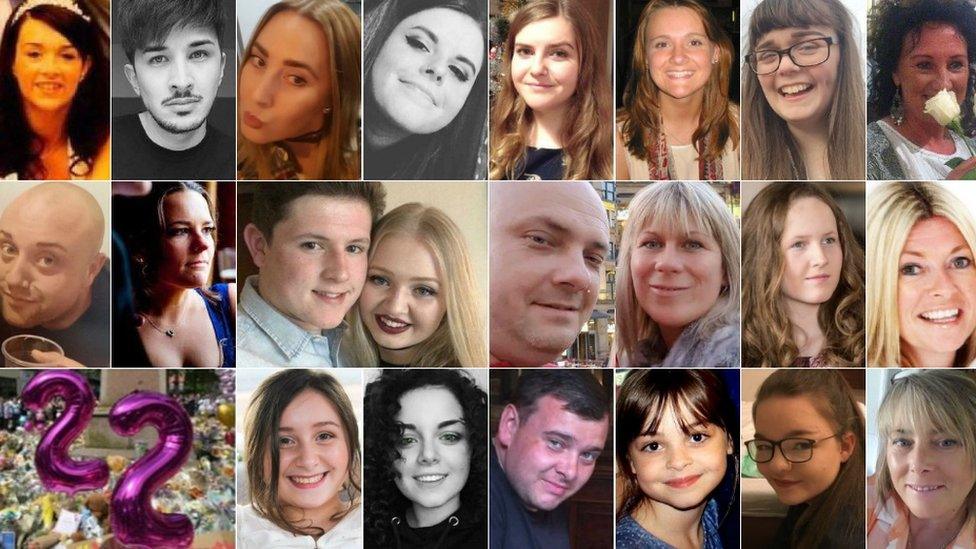
The bomb was detonated at the end of an Ariana Grande concert, killing 22 people
The inquiry heard he has cited a privilege against self-incrimination as a reason to refuse to questions from the inquiry.
Rajiv Menon QC told the inquiry that Abdallah was "not involved in any way" in the attack.
"He did not groom or radicalise Salman Abedi," he said.
"He had no knowledge whatsoever of the planning and preparation of the terrorist attack at Manchester Arena.
"He heard about the attack for the very first time in prison after it had been reported in the press. He is unfit to give evidence."
He said his client did not believe he would be treated fairly by the inquiry, adding that he had been legally advised "in the strongest possible terms" to exercise his right to silence.
Pete Weatherby QC, representing some of the families, said Abdallah had crucial evidence to give the inquiry about the radicalisation of Abedi and "whether the plot went further than the Abedi brothers themselves".
He said Abdallah was an "important" witness who should be called to give evidence and the medical reports were "central" to whether he should be excused from going into the witness box.
The inquiry chairman Sir John Saunders will publish his decision on whether the reports should be disclosed at a later date to be confirmed.
Any argument about whether Abdallah will be called as a witness to the inquiry will take place at a later date.

Why not follow BBC North West on Facebook, external, Twitter, external and Instagram, external? You can also send story ideas to northwest.newsonline@bbc.co.uk
Related topics
- Published12 February 2021
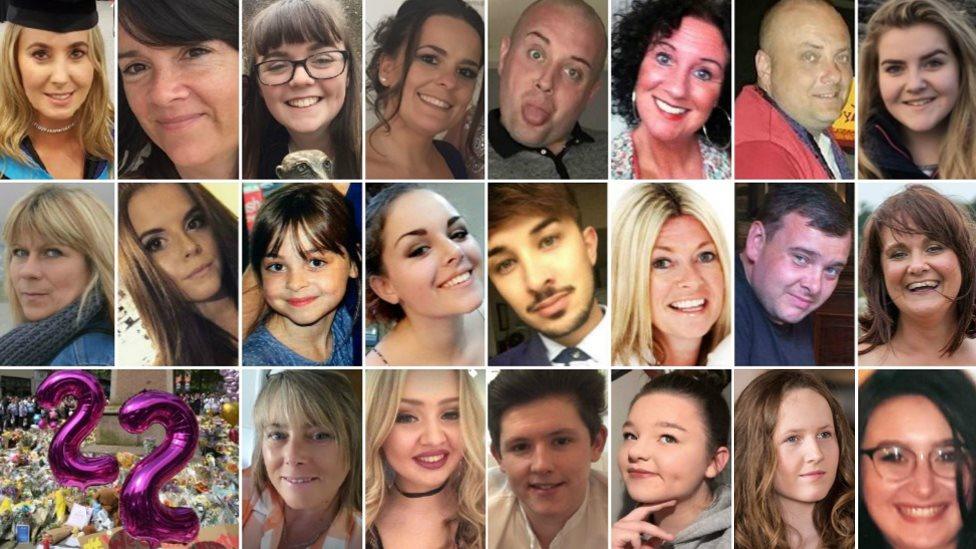
- Published10 February 2021
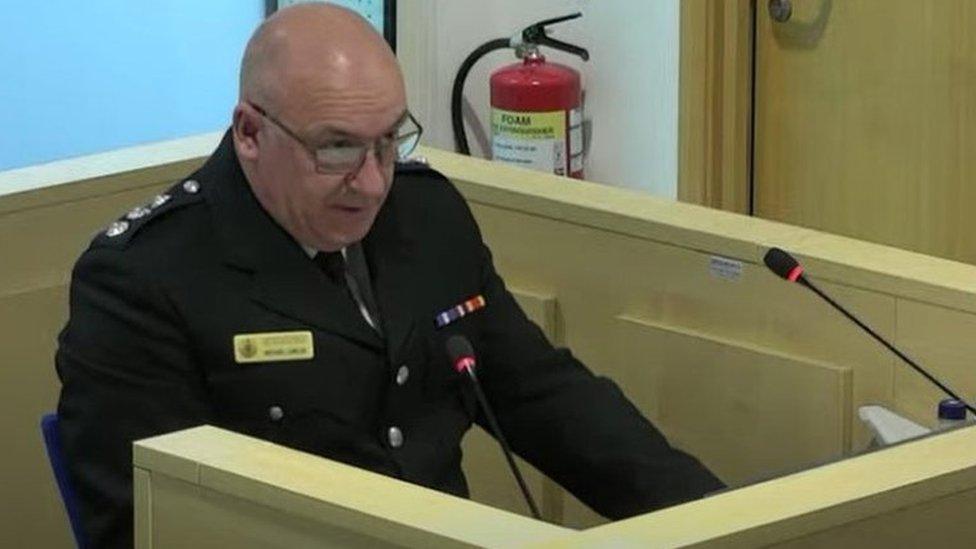
- Published24 July 2020

- Published13 July 2020

- Published9 July 2020

- Published13 June 2020

- Published21 April 2020
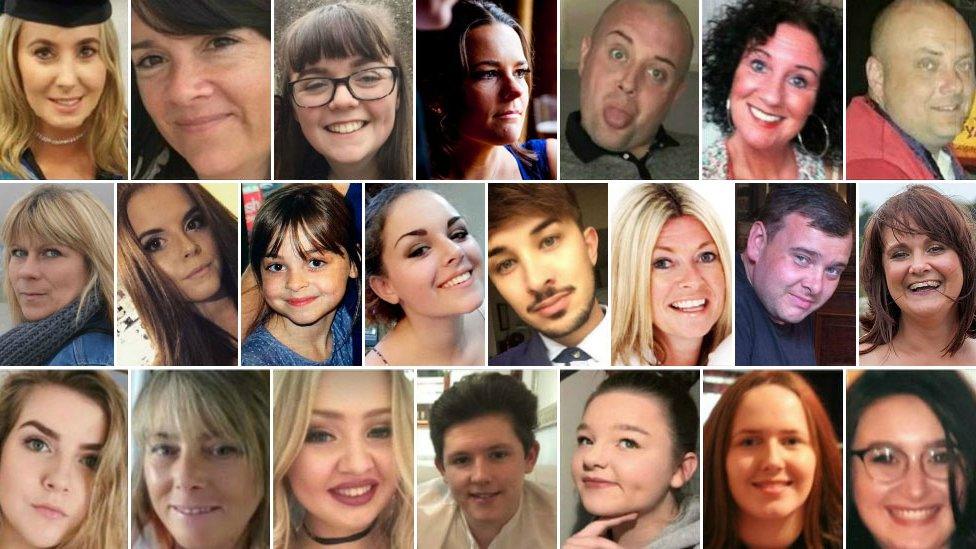
- Published7 April 2020

- Published28 January 2020

- Published17 March 2020
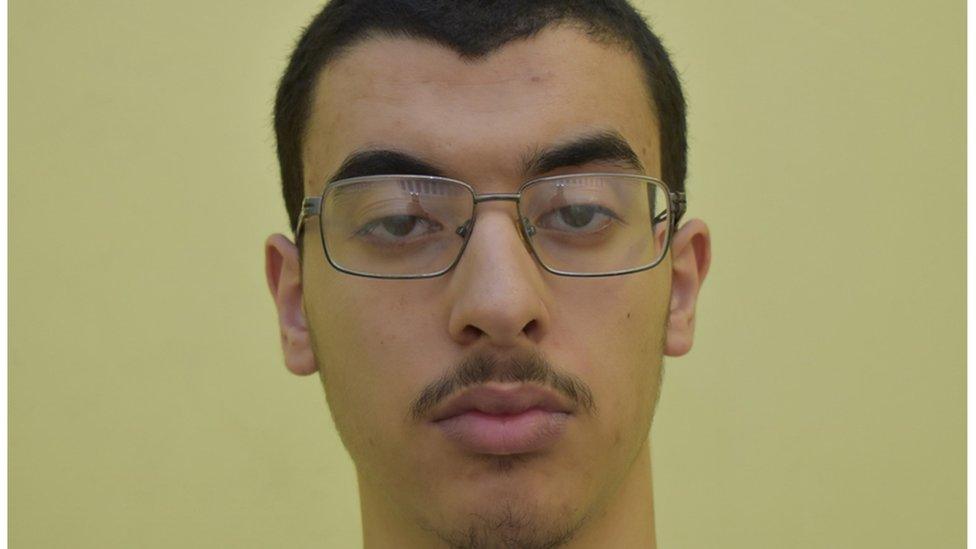
- Published17 March 2020
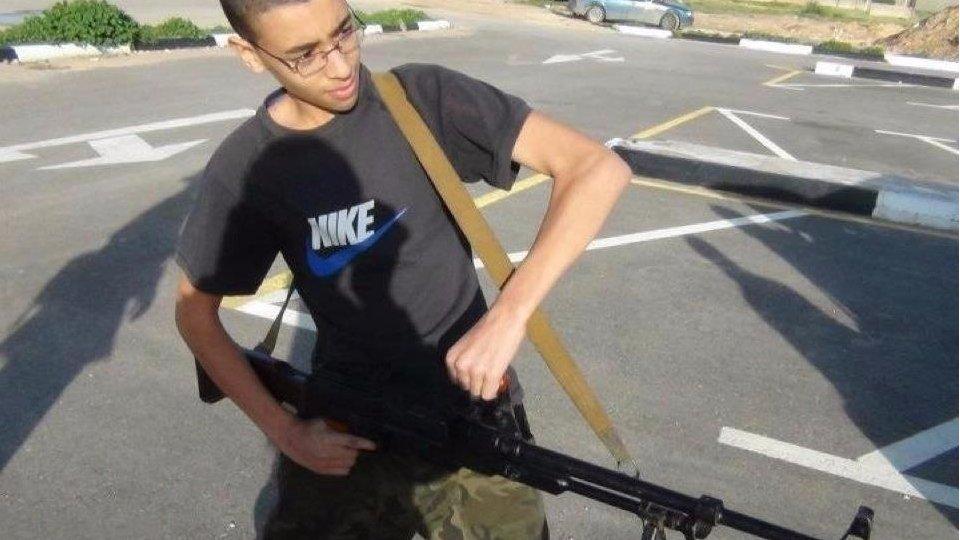
- Published3 November 2022
